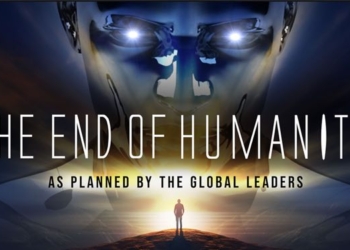Source: CS Globe
It’s not easy predicting the future of technology. In the fifties it seemed a pretty much foregone conclusion that by 2015 we would all be commuting to the moon in our flying cars.
Yet here we are, still making a living on earth and still driving around on four wheels.
Today, predicting the direction in which technology is heading is a lot easier than it was 65 years ago.
Unfortunately, these advancements don’t always have the potential to benefit mankind, sometimes the opposite is true.
Is our way of life, or indeed all of humanity, at risk from these dangers?
Or are these predictions just as outlandish as those made in 1950?
The Total Loss Of Privacy

There are plenty of people who would argue that this isn’t a problem posed by future technology, but one which is already here. After the recent revelations that Samsung’s range of new smart TVs may be recording users private conversations and sharing the details with third parties, the fear that our home appliances may be spying on us is becoming less sci-fi paranoia and more a real concern.
So where will this end? Will the rush to embrace the digital era mean us waving goodbye to our privacy forever? The worry is that a day may come where every single aspect of our lives is monitored and recorded by governments who want to know what we’re up to, conglomerates investigating our spending habits, or even banks making sure we aren’t living above our means.
The often repeated line from those wishing to take our privacy away from us is that it is for our own protection. That if we’re so concerned about our privacy, then we must have something to hide; so stop closing the bathroom door when you go to the toilet, it makes you look suspicious.
A Permanent Digital Connection To The Workplace

Those of a certain age may remember a time when standard working hours consisted of Monday through Friday, 9 to 5. When you got home, work was mostly forgot about until the next day or after the weekend; it’s now pretty rare to find any occupation where this is still the case. As society as a whole becomes even more connected, we can expect work to intrude ever more into our home and family lives.
How would this be a danger? For a start there’s the possibility of companies ruling every aspect of an employees life, knowing where they are and what they’re doing at any given time. There’s also the potential workaholic lifestyle stifling human creativity. Even today most Americans spend an extra day a week working after hours, this is only like to increase in the future, leading to a multitude of health (death from overworking isn’t uncommon) and social problems.
All Data Becoming Digital

There are people alive today who have never seen a VHS tape, all they’ve ever known is the digital era of data storage. Even what was once the most popular ways of recording information, on paper and on printed photographs, is becoming less popular, thanks to the speed and simplicity their digital alternatives offer.
What possible dangers could arise from continuing this trend of data storage? Well there’s the risk of increasingly advanced technology becoming incompatible with today’s hardware. This is something we’re seeing now with data which was stored on cassette and floppy disks in the eighties. There’s also the danger of the all the hard drives being wiped – it can be a lot easier to delete some digital data than destroy the physical version. And what if, far into the future, kids are taught to type instead of write? Will pencils and pens disappear completely? Could the next DaVinci’s tools be a mouse instead of a paintbrush?
Having A Totally Machine Based Workforce

Advancements in technology have always posed the risk of creating machines that do the jobs of humans. Manufacturing jobs in particular are often one of the most at risk areas.
With new advances in the field of robotics being made every day, it has been estimated that nearly half of all US jobs will be vulnerable to computerization within the next 20 years.
Previous employment areas which were once considered ‘human only’ are now being taken over by machines. Twenty years ago a self-checkout machine was thought impossible, now there are almost half a million worldwide, enabling one member of staff to run up to six checkout lanes at a time.
With AI becoming ever more advanced, there may come a time when computers are able to do jobs which requires human decision making. With automatic cars also just around the corner, will the sole job for humans in the future be the repair and maintenance of the machines which took their jobs? Or at least until a device is invented that can do that as well.
You might also like:
7 Must-Watch Dystopian Films That Will Make You Think About the Future of Our Society
Two Simple Ways You Can Sense the Future
















I don’t agree NZ$ wit your first sentence sorry IMO
great post
Thanks a lot 🙂